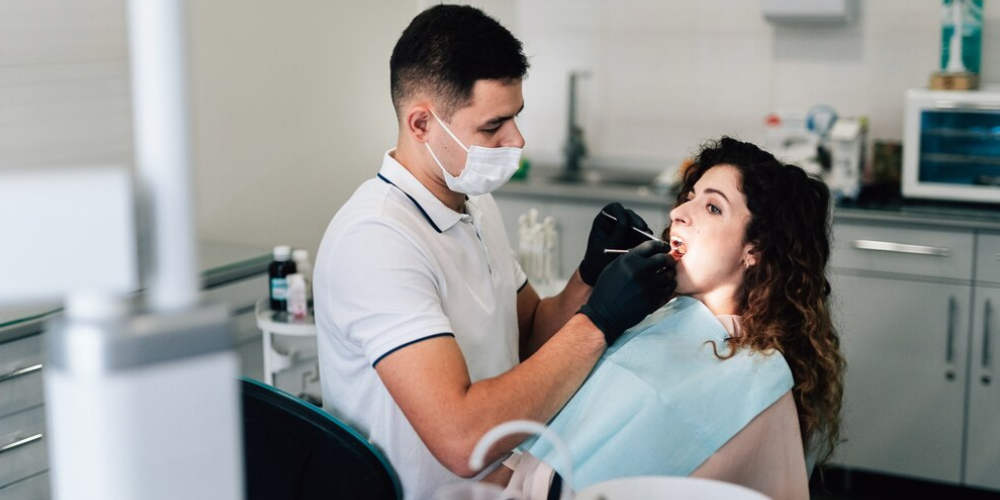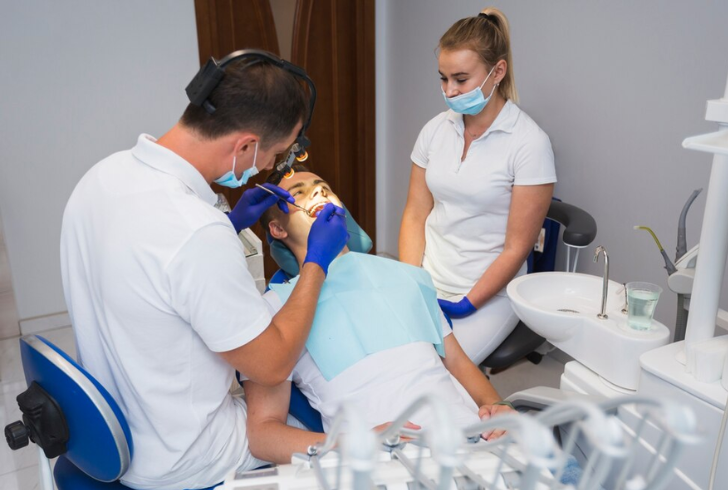
Are Dental Savings Plans Worth It? Pros and Cons Explained

When it comes to dental care, many people are faced with the choice between traditional dental insurance and dental savings plans. While dental insurance is well-known, dental savings plans often raise the question – are dental savings plans worth it?
Understanding the ins and outs of these plans can help you make an informed decision about your dental care options.
What Are Dental Savings Plans?

Freepik | Dental savings plan members pay an annual fee for discounted rates at participating providers.
Dental savings plans, also known as dental discount plans, operate differently from traditional insurance. Rather than paying a monthly premium for coverage, members pay an annual fee to access discounted rates at participating dental providers. These discounts can range from 10% to 60% off the usual cost of various dental procedures, making it an attractive option for those seeking to reduce their dental expenses.
How Dental Savings Plans Work
Upon enrolling in a dental savings plan, members receive a membership card that they present at participating dental offices. The dental office applies the agreed-upon discount to the cost of services, and the member pays the reduced fee directly to the provider. This straightforward process eliminates the need for claim forms or waiting periods typically associated with insurance.
Pros and Cons of Dental Savings Plans

Freepik | Dental savings plans can save you big, whether you need a dental overhaul or just routine checkups.
When evaluating whether dental savings plans are worth it, it’s essential to consider both the benefits and the potential drawbacks.
Pros
- Cost Savings: Dental savings plans can lead to substantial savings, particularly for those who need extensive dental work or regular maintenance.
- Immediate Access – Unlike insurance, which may have waiting periods for certain procedures, dental savings plans provide immediate access to discounts as soon as the membership is active.
- No Claim Forms – The direct payment model of dental savings plans eliminates the hassle of dealing with insurance claims and reimbursement processes.
- No Coverage Caps – Members can receive discounts on an unlimited number of procedures each year, making it a cost-effective option for ongoing dental care.
Cons
- Out-of-Pocket Payments: While the discounts can be significant, members are still responsible for paying the reduced fee directly to the dental provider, which can add up depending on the extent of care needed.
- Limited Provider Network: Dental savings plans may have a smaller network of participating dentists compared to traditional insurance plans. It’s important to verify that your preferred dentist accepts the plan before enrolling.
- No Coverage for Major Medical Issues: Unlike traditional dental insurance, savings plans do not cover major dental issues or emergencies, which can lead to higher out-of-pocket costs in such cases.
Who Should Consider a Dental Savings Plan?

Freepik | prostooleh | Dental savings plans can be a budget-friendly option for seniors with limited dental insurance.
Dental savings plans can be a suitable option for various individuals based on their specific needs and circumstances.
Ideal Candidates
- Individuals with Good Dental Health: Those who maintain excellent oral hygiene and require only routine checkups and cleanings can benefit from the cost savings of a dental savings plan without worrying about high out-of-pocket expenses for major procedures.
- Uninsured or Underinsured Individuals: People who lack dental insurance or whose insurance does not adequately cover their needs may find dental savings plans to be a cost-effective alternative.
- Retirees and Seniors: Dental savings plans can be particularly beneficial for seniors on fixed incomes who may not have access to comprehensive dental insurance.
Are Dental Savings Plans Worth It?
Ultimately, the answer to “are dental savings plans worth it” depends on individual circumstances. For those who prioritize cost savings, immediate access to care, and flexibility, dental savings plans offer a valuable alternative to traditional insurance.
However, it’s crucial to weigh the potential out-of-pocket costs and ensure that your preferred dental providers accept the plan before making a decision. By carefully considering your dental care needs and financial situation, you can determine whether a dental savings plan is the right choice for you.
More in Financial Advice
-
`
Exploring Jeff Bezos’ IQ: Strategies for Success and an Intellect That Sets Him Apart
Jeff Bezos, the iconic American entrepreneur, investor, and founder of Amazon, is renowned not only for his business acumen but also...
April 14, 2024 -
`
How Safe is New York to Travel Now? Some Tips For Safety in NYC
Is it safe to travel to New York right now? This question seems to be on everyone’s lips these days. With...
April 12, 2024 -
`
Top 5 QuickBooks Alternatives to Try in 2024
More than ever before, finding the right tool that fits perfectly with your business needs can be a challenge today. Although...
April 5, 2024 -
`
How Long Are Passports Good for? A Detailed Guide
Ever found yourself rummaging through drawers, trying to locate your passport the night before an international flight? In that moment of...
March 28, 2024 -
`
Annette O’Toole and Michael McKean’s Timeless Hollywood Marriage
The love story between Annette O’Toole and Michael McKean is a beacon of enduring partnership – especially when it comes to...
March 23, 2024 -
`
Shifting Gears: Successfully Transitioning Your Client Base Across Industries
Ever feel that entrepreneurial itch to push your boundaries and explore new horizons? Perhaps you started with a laser focus on...
March 16, 2024 -
`
Music Icon Dolly Parton Reveals Secrets to Her $440 Million Fortune
Beloved country music legend Dolly Parton has long been an enigma wrapped in a rhinestone-studded enigma. At almost 80 years of age,...
March 9, 2024 -
`
Scaling Up Your Small Business: A Tightrope Walk With a Winning Plan
Building a thriving small business is like nurturing a seedling. You pour your heart and soul into its growth, watching it...
February 27, 2024 -
`
Is SZA All Set to Launch the Next Big Celebrity Makeup Line?
Today, celebrities launching their makeup lines have become as much of a trend as their next hit single. Among the glittering...
February 19, 2024















You must be logged in to post a comment Login